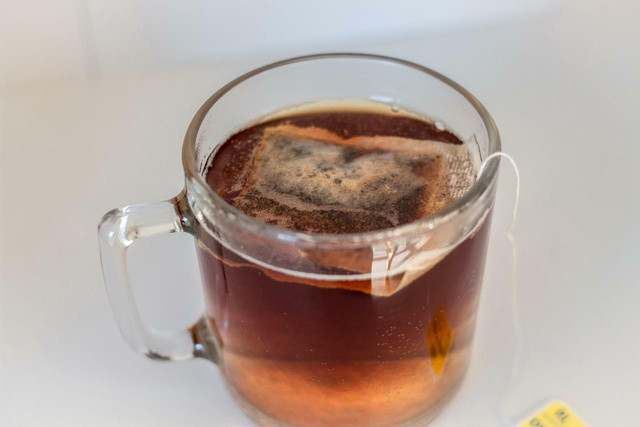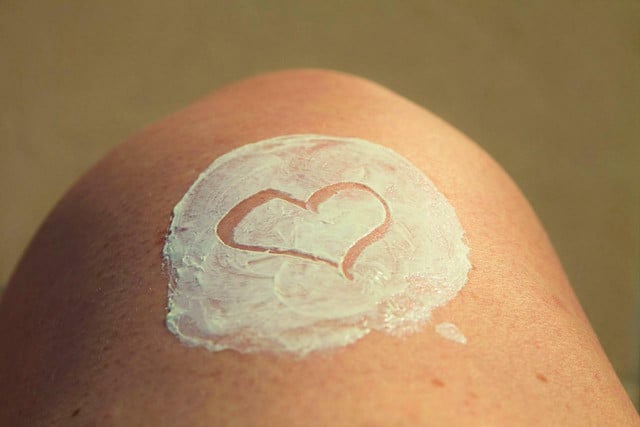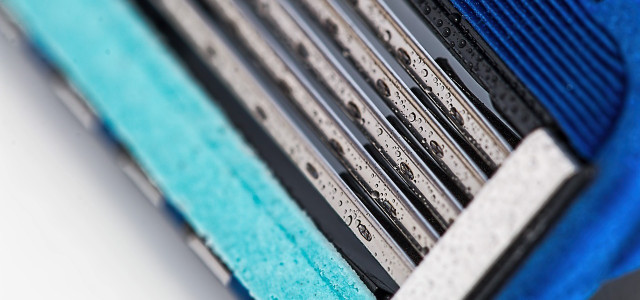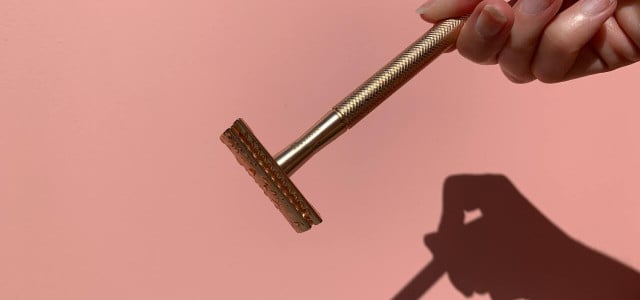Most of us have experienced the irritation and discomfort of ingrown hair at some point in our lives, but how do we get rid of them and how do we avoid them in the first place? In this article, we’ll answer these questions, plus provide some natural home remedies to treat them.
What Causes Ingrown Hairs?
Ingrown hairs typically occur after hair removal processes such as shaving, waxing, or tweezing. They especially appear when hair grows in the wrong direction and is mistakenly regarded as a foreign invasion, causing inflammation.
Curling inward instead of developing outward, they occur when a hair follicle encounters a clogged skin pore. They can cause a variety of uncomfortable and sometimes some of the following painful symptoms.
- Discomfort and irritation to the skin.
- Itching and Pain
- Pustules (little pimples or raised bumps) on the face, neck, armpits, pubic regions, or legs
While not necessarily harmful, they are certainly unpleasant to look at and can cause further skin irritation. In rare cases, they can even flare up and become more infected. What remains, then, is the question of how to prevent and treat ingrown hairs.
Natural Home Remedies for Ingrown Hairs



Let’s imagine for a second that you’ve looked in the mirror after removing some hair, and to your shock, you have some ingrown hairs. It’s understandable that you’d like them to disappear as soon as possible, but you should really take things slow and avoid drastic measures.
First of all, if you have an inflamed area of the skin, don’t touch it with your bare hands or squeeze or pluck the hair, as it can cause infection. It’s important to treat your skin gently, which is why we’ve included these seven DIY natural home remedies for ingrown hairs that will help exfoliate the skin and prevent and soothe any irritations.
- Exercise Patience — Ingrown hairs are unpleasant, but they usually go away on their own. Infection and scarring can result from scratching or plucking at an ingrown hair. If you want to get rid of them organically, sometimes you just have to wait. You don’t need to be concerned if there are no worrying signs of infection.
- Circular Cleansing — If you just can’t stand to wait, try gently scrubbing the region around the ingrown hair with a clean, soft washcloth in a circular motion with soap and warm water for several minutes. This is something you should do definitely before shaving and going to bed anyway.
- Sterile Tweezers — If the ingrown hair is close to the skin’s surface, you can gently remove it with sterile tweezers. To sanitize your tweezers, soak a cotton ball in rubbing alcohol and apply it to the whole surface area. Otherwise, immerse your tweezers for 15 minutes in boiling water. Never take this step with non-sterilized tweezers as it can cause further infection. Naturally, you should never use this procedure to remove deep ingrown hairs; instead, seek the advice of a medical practitioner.
- Sugaring Paste — This is an all-natural home remedy for hair removal and is made using common household items. Create a mixture of sugar, honey, water, and lemon juice to get rid of hair without the pain of waxing. If you have sensitive skin, this might be a more suitable solution for you. As natural gentle exfoliators, sugar, and salt can be used to an ingrown hair to help alleviate any inflammation or redness.
- Tea Tree Oil — We’ve talked about the benefits of tea tree oil for skincare before, and how research suggests it can aid against acne. Tea tree oil has anti-bacterial and anti-inflammatory properties which can help exfoliate your skin. To help with ingrown hairs, add a couple of drops of tea tree oil to a small bowl of warm water. Using a clean, soft washcloth, dip your cloth into the mixture and dab gently to the affected area several times a day.
- Soaking With a Black Tea Bag — Like tea tree oil, black tea also has anti-inflammatory properties which can act as a home remedy for ingrown hairs, by reducing red skin. To get started, remove a black tea bag from warm water. Next, carefully apply it to the irritated area and massage it against the skin for two to three minutes. If necessary, repeat it multiple times per day.
- Baking Soda and Oatmeal — As we’ve highlighted before, oats are packed with antioxidants which are also anti-inflammatory and can help moisturize the skin, regardless of how sensitive your skin is. Therefore, it rightly belongs on this list of home remedies for ingrown hairs. To begin, in a bowl of warm water, combine a tablespoon of baking soda and a tablespoon of ground oats. Stir constantly until thick paste forms. Soak a cotton pad in this mixture and gently apply it to the irritated area. Allow it to sit on your skin for around ten minutes before washing with warm water.
How to Prevent Ingrown Hairs: 4 Simple Tips



Topical home remedies for ingrown hairs, such as those we discussed above, can help relieve inflammation and irritation, but it’s still important to get to the root of the problem. For optimal results, try hydrating and exfoliating your skin on a daily basis.
If you’re noticing an abundance of ingrown hairs (so much so that they’re causing you frequent discomfort or leading to infections), it may be time to consult a dermatologist.
Aside from the home remedies for ingrown hairs mentioned above, here are four simple actions you can take to hopefully prevent ingrown hairs entirely. They are as follows:
- Never Shave Your Skin Dry — Always use plenty of warm water and good quality, all-natural shaving lotion to soften the hairs and surrounding area before beginning to shave. If you want to learn how to make your own natural shaving cream, we’ve got you covered.
- Press Lightly and Change Blades Regularly — Pulling your skin tight or putting too much pressure on the blade during shaving merely brings the razor closer to the skin, increasing the chances of skin irritation. Be gentle. If you feel your razor snagging and pulling at your hairs instead of cutting them smoothly, it’s time for a new blade.
- Consider Waxing for Sensitive Areas — The skin in our more intimate areas can be more prone to ingrown hairs and irritation when we use a razor, so consider using a softer hair removal method such as waxing.
- Always Wash Your Face Afterwards — After you’re done shaving, give your skin a quick rinse with some moisturizer or soap. You can also soften the skin by wiping a warm towel over it, which will help pull any ingrown hairs out faster.
Read more:
- Sunburn Home Remedies: 3 Natural Treatment Methods
- Dry Skin Remedies: 9 Ways to Soothe Dry Skin Naturally
- Rose Water for Skin: Benefits and How to Use It
Important Information regarding Health-related Topics.
** Links to retailers marked with ** or underlined orange are partially partner links: If you buy here, you actively support Utopia.org, because we will receive a small part of the sales proceeds. More info.Do you like this post?








